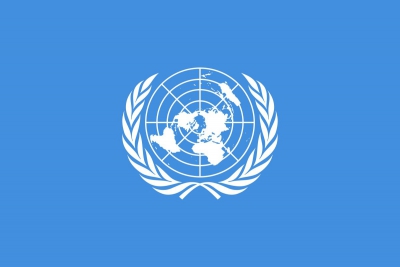Kashmir (IPA: [kamir]) is the northernmost geographical region of the Indian subcontinent. Until the mid-19th century, the term "Kashmir" denoted only the Kashmir Valley between the Great Himalayas and the Pir Panjal Range. Today, the term encompasses a larger area that includes the Indian-administered territories of Jammu and Kashmir and Ladakh, the Pakistani-administered territories of Azad Kashmir and Gilgit-Baltistan, and the Chinese-administered territories of Aksai Chin and the Trans-Karakoram Tract.In 1820 the Sikh Empire, under Ranjit Singh, annexed Kashmir. In 1846, after the Sikh defeat in the First Anglo-Sikh War, and upon the purchase of the region from the British under the Treaty of Amritsar, the Raja of Jammu, Gulab Singh, became the new ruler of Kashmir. The rule of his descendants, under the paramountcy (or tutelage) of the British Crown, lasted until the Partition of India in 1947, when the former princely state of the British Indian Empire became a disputed territory, now administered by three countries: India, Pakistan, and China.
The United Nations Organization (UNO) or just United Nations (UN) is an intergovernmental organization whose purpose is to maintain international peace and security, develop friendly relations among nations, achieve international cooperation, and be a centre for harmonizing the actions of nations. It is the world's largest and most familiar international organization. The UN is headquartered on international territory in New York City, and has other main offices in Geneva, Nairobi, Vienna, and The Hague (home to the International Court of Justice).
The UN was established after World War II with the aim of preventing future wars, succeeding the rather ineffective League of Nations. On 25 April 1945, 50 governments met in San Francisco for a conference and started drafting the UN Charter, which was adopted on 25 June 1945 and took effect on 24 October 1945, when the UN began operations. Pursuant to the Charter, the organization's objectives include maintaining international peace and security, protecting human rights, delivering humanitarian aid, promoting sustainable development, and upholding international law. At its founding, the UN had 51 member states; with the addition of South Sudan in 2011, membership is now 193, representing almost all of the world's sovereign states.The organization's mission to preserve world peace was complicated in its early decades by the Cold War between the United States and Soviet Union and their respective allies. Its missions have consisted primarily of unarmed military observers and lightly armed troops with primarily monitoring, reporting and confidence-building roles. UN membership grew significantly following widespread decolonization beginning in the 1960s. Since then, 80 former colonies have gained independence, including 11 trust territories that had been monitored by the Trusteeship Council. By the 1970s, the UN's budget for economic and social development programmes far outstripped its spending on peacekeeping. After the end of the Cold War, the UN shifted and expanded its field operations, undertaking a wide variety of complex tasks.The UN has six principal organs: the General Assembly; the Security Council; the Economic and Social Council (ECOSOC); the Trusteeship Council; the International Court of Justice; and the UN Secretariat. The UN System includes a multitude of specialized agencies, funds and programmes such as the World Bank Group, the World Health Organization, the World Food Programme, UNESCO, and UNICEF. Additionally, non-governmental organizations may be granted consultative status with ECOSOC and other agencies to participate in the UN's work.
The UN's chief administrative officer is the secretary-general, currently Portuguese politician and diplomat António Guterres, who began his first five year-term on 1 January 2017 and was re-elected on 8 June 2021. The organization is financed by assessed and voluntary contributions from its member states.
The UN, its officers, and its agencies have won many Nobel Peace Prizes, though other evaluations of its effectiveness have been mixed. Some commentators believe the organization to be an important force for peace and human development, while others have called it ineffective, biased, or corrupt.

1949Jan, 1
United Nations cease-fire takes effect in Kashmir from one minute before midnight. War between India and Pakistan stops accordingly.
Choose Another Date
Events on 1949
- 1Apr
Communist Party of China
Chinese Civil War: The Chinese Communist Party holds unsuccessful peace talks with the Nationalist Party in Beijing, after three years of fighting. - 20Jul
1948 Arab-Israeli War
Israel and Syria sign a truce to end their nineteen-month war. - 1Oct
Mao Zedong
The People's Republic of China is established and declared by Mao Zedong. - 2Oct
Mao Zedong
The Soviet Union recognises the People's Republic of China, proclaimed the previous day by Mao Zedong. - 14Oct
People's Liberation Army
Chinese Civil War: Chinese Communist forces occupy Guangzhou.

 English
English  español
español  français
français  português
português  русский
русский  العربية
العربية  简体中文
简体中文 